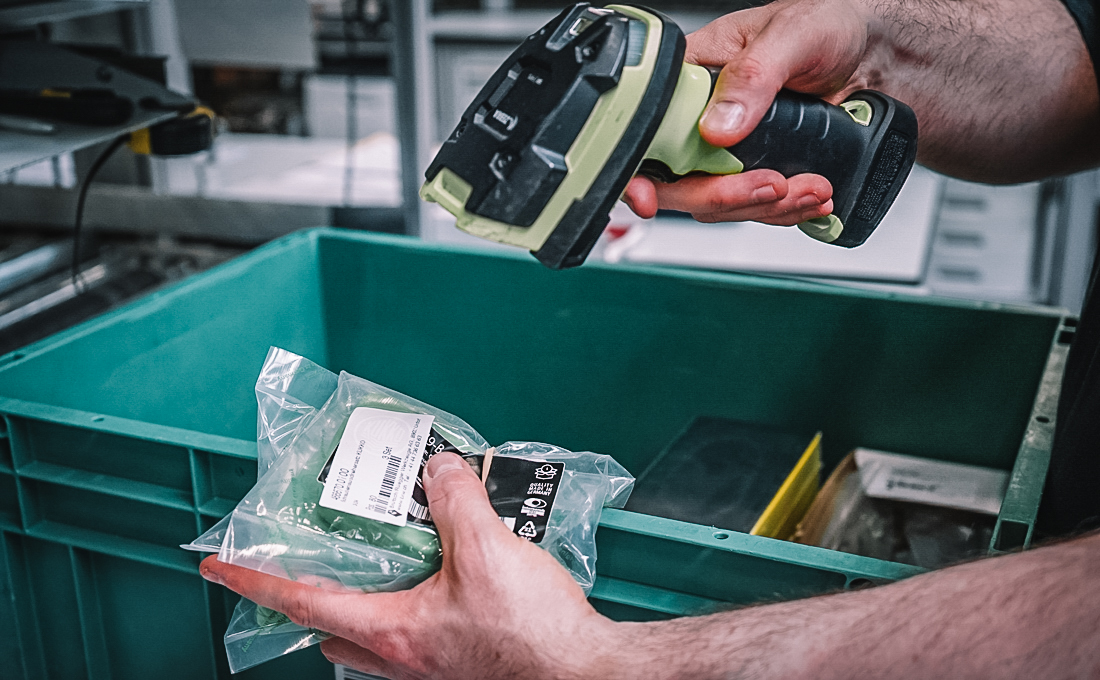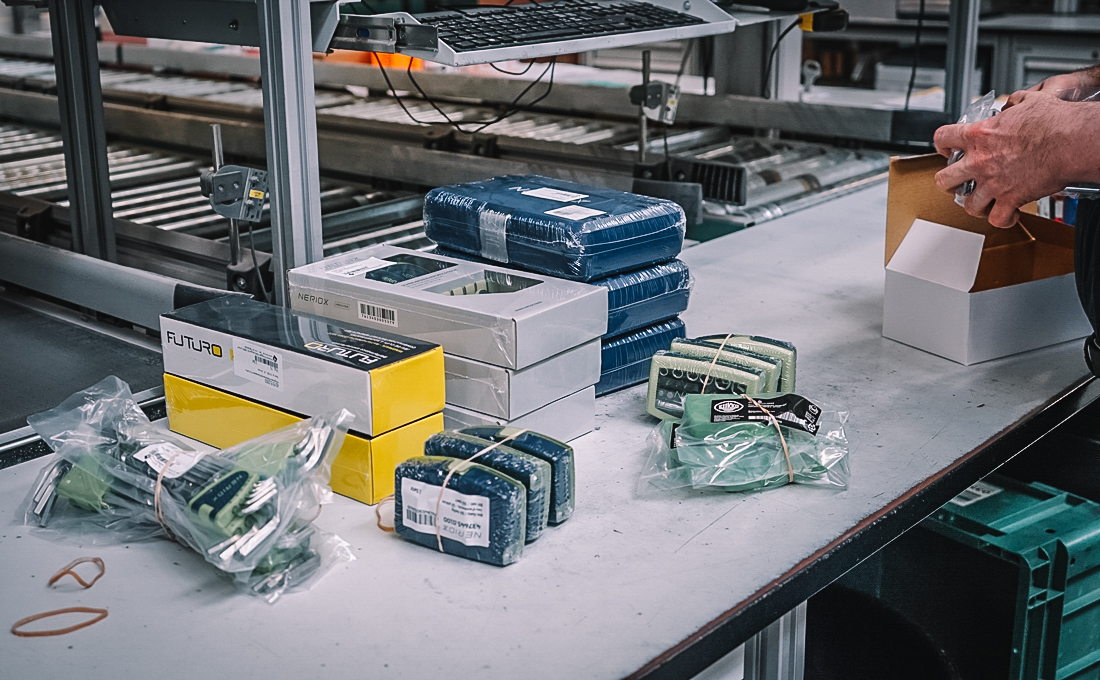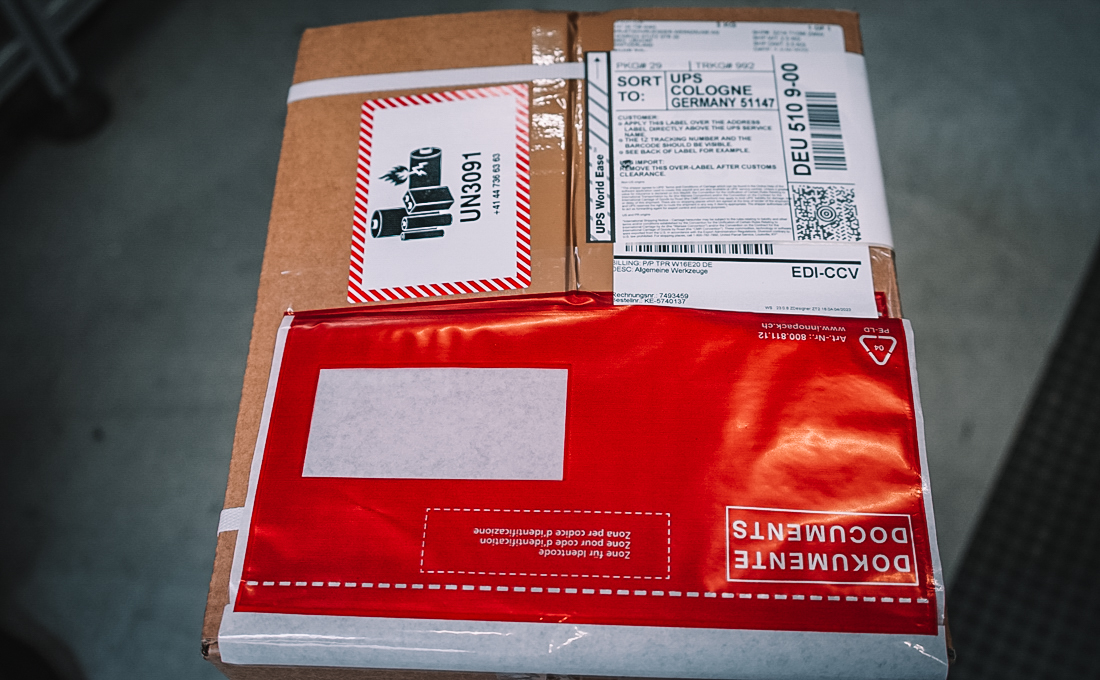The biggest stumbling blocks for exporting tools
Various tasks, challenges and decisions are required in the day-to-day business of SMEs. "And these companies face additional administrative, processing or customs-related challenges in practice, particularly when they want to export tools," explains Benjamin Wandeler. As Team Leader International Sales and Management Member at Brütsch/Rüegger Tools, he is in regular contact with small and medium-sized Swiss companies from all sectors. But what are the specific export issues that Wandeler is talking about?
How to make sure that exports do not become a headache
Anybody wanting to send tools abroad wants the process to be precise, smooth and, above all, fast. But in practice, the process is often anything but smooth. This is why Brütsch/Rüegger Tools also supports its customer businesses with their international tool exports. Our experienced, eight-person export team is available to help you. The team's experts can provide advice in German, French, Italian, English, Spanish and Portuguese.
Email us at: export@brw.ch
or call us on +41 44 736 63 63. We look forward to supporting you in all aspects of your export management!
Packaging is not just packaging
Anyone who wants to send a dozen dial gauges from Zurich to Obwalden does not have to jump through many hoops to do so. In 99 percent of cases, a simple box with plenty of filling material is all that is required to ensure that the goods to arrive at their destination undamaged. "However, this is quite different when, for example, items are sent to Mexico or to other countries in vastly different climate zones," adds Benjamin Wandeler.
Not only do temperature differences suddenly play a critical role, but as a sender, you also do not know whether the goods will be delivered in wet or other extreme weather conditions.
In addition, the conditions at the central warehouses in other countries may be unknown. "Simple standard cardboard packaging can quickly turn out to be inadequate and the goods can be damaged.”
Correct declarations
However, it is not just the choice of cardboard packaging that makes the difference — any package that starts a journey to another country should be correctly sealed and securely packaged. This significantly increases the "survival chances" of a package. "And then every shipment must also be accompanied by the correct invoice," continues Wandeler. Simply adding the delivery note is not enough for international export, unlike shipments within Switzerland. In addition, if special goods such as batteries or certain chemicals are being shipped, the sender must also comply with special regulations, which change all the time.
If the goods are securely and properly packed and declared, the shipment must be saved in the company's internal ERP system. "This responsibility takes resources and, above all, time." The use of specific export software is also necessary for shipping goods across national borders. "It's not necessary for shipments inside Switzerland, but you cannot avoid it for international exports." The acquisition of these programs is a major cost factor for SMEs, while at the same time personnel needs to be trained to use the software. "This effort is really only worthwhile for companies that export a lot and regularly," says Benjamin Wandeler, speaking from experience.
Difficulties with customs
One bone of contention for many exporting companies is how goods are handled by the customs authorities. This can quickly result in frequent delays. "If, for example, information is not correctly identified, the goods are stopped at the border and the customs authorities request further information."
That wastes a lot of time. If you fail to respond within the deadline, the goods will simply be returned. This is expensive, complicated and frustrating. "The benefit we have in this respect is that our specific, bespoke software enables us to generate all the documents relevant to export at the touch of a button and send all information to the customs authorities in digital form." This is just one of the reasons why many companies decide to entrust their tool exports to Brütsch/Rüegger Tools.
Another benefit is that the digital export solution that Brütsch/Rüegger Tools uses also includes downstream service providers such as courier and freight contractors. According to Benjamin Wandeler, this makes the process much easier, creates transparency and therefore reduces costs. "Working quickly always pays off," says the Team Leader. Brütsch/Rüegger Tools can also take care of the packaging and declaration of the goods at the customer's request. "This enables companies that do not export huge quantities and therefore do not want to set up a specific department for the process to export competitively."







